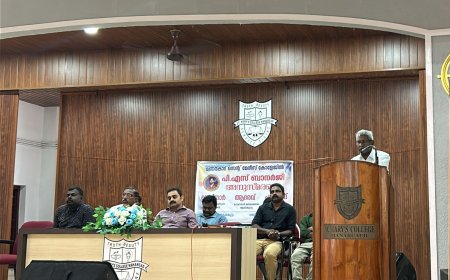India-Canada Joint Statement: Top 10 takeaways on trade, climate action and strategic stability
In Monday's bilateral meeting, India and Canada unveiled a new roadmap aimed at enhancing economic cooperation and addressing global challenges. With a focus on trade, climate action, and strategic stability, both nations are set to strengthen their partnership amidst rising geopolitical tensions.

EXTERNAL Affairs Minister S Jaishankar met with the visiting Minister of Foreign Affairs of Canada, Anita Anand, in New Delhi on 13 October.
The meeting was a follow-up to the guidance provided by the Prime Ministers of the two countries during their meeting on the sidelines of the G7 Summit in Kananaskis, Canada, to take calibrated measures to restore stability in the relationship, the External Affairs Ministry said in a press release after the meeting.
In a post on X, Jaishankar said that he had constructive discussions aimed at restoring and reinvigorating the mechanisms necessary to advance their partnership. “We also agreed on an ambitious cooperation roadmap. And to shepherd the process of rebuilding our cooperation so that it delivers on the expectation of our leaders and the interests of our people,” he said.
As mentioned in the India-Canada Joint Statement on renewing momentum towards a stronger partnership, here are 10 key takeaways from the bilateral meeting.
1- In keeping with the priorities that the Prime Ministers of India and Canada had set out for bringing momentum to the relationship, both sides, based on mutual respect for shared democratic values, the rule of law, and a commitment to upholding the principles of sovereignty and territorial integrity, reached consensus on a New Roadmap for India-Canada relations.
2- The Ministers recognised that in the context of ongoing global economic uncertainty and rising geopolitical tensions, a strong and resilient India-Canada bilateral relationship is essential.
“Reviving this partnership will not only create opportunities for enhanced economic cooperation but also help mitigate vulnerabilities arising from shifting global alliances, ensure more reliable supply chains, and reinforce strategic stability in an increasingly complex international environment,” the statement said.
3- The Ministers noted with satisfaction the substantial increase in bilateral trade, which reached $23.66 billion in 2024, and the expanding presence of Indian and Canadian enterprises in each other’s markets, generating jobs with significant potential for future growth. They also acknowledged the important role played by Canadian provinces, six of which maintain representation in India, as well as by Indian states in advancing mutually beneficial economic cooperation.
We also agreed on an ambitious cooperation roadmap. And to shepherd the process of rebuilding our cooperation so that it delivers on the expectations of our leaders and the interests of our people.
The Ministers agreed to work closely together and instructed their respective teams to initiate necessary steps to implement the agreed roadmap.
4- Commencing ministerial-level discussions on bilateral trade and investment informed by today’s economic realities and each country’s strategic priorities.
5- Resuming the Canada–India CEO Forum, which will bring together leading business executives from both countries to identify concrete, actionable recommendations for both governments to facilitate increased bilateral trade and investment, with a focus on priority sectors such as clean technology, infrastructure, agri-food, and digital innovation. The forum will convene on the margins of a senior-level trade mission in early 2026.
6- Increase bilateral cooperation on climate action, environmental protection and conservation.
7- Collaborate, exchange information and expertise, and support respective climate ambitions in a wide range of areas, including renewable energy capacity, decarbonising heavy industries, reducing plastic pollution, supporting the sound management of chemicals, and ensuring sustainable consumption.
8- Re-establish the Canada-India Ministerial Energy Dialogue (CIMED), including the related Action Plan at the earliest.
9- Promote two-way trade for LNG & LPG and investment in the oil and gas Exploration & Production sector, including clean technologies.
10- Promote dialogue among government, industry, and think tanks to identify how Canada’s mining expertise can provide India with critical minerals needed for energy security.
















































































